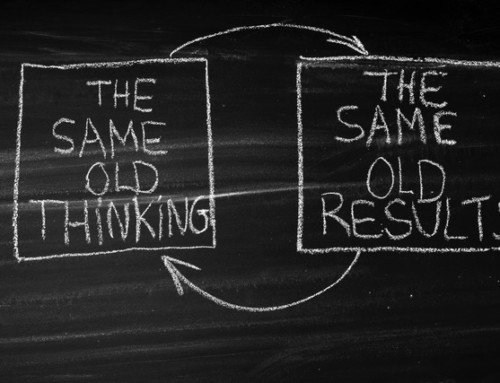What’s with egos? We all have them. They are not intrinsically bad. It’s normal to want to be the best you can be, and desire recognition for your accomplishments. But what happens when someone’s ego goes too far?
How do you know if you are dealing with a person with just a healthy dose of confidence and assertiveness, or someone with an oversized ego? Or worse, one that even morphs beyond an irritating egotist into a much more damaging workplace bully? Identifying someone with a big ego is half of the battle.
Watch for some of these common egotistical behaviors
- Wanting or demanding credit for every idea
- Using “I” or “me” instead of “we” or “us” almost exclusively
- Dominating conversations and meetings
- Reminding others of their superiority or excellence (real or perceived)
- Stopping others from expressing their ideas
- Rewarding only those who support them
- Bullying or exerting power motivated by self-interest rather than business interest
Five Tactics to Manage Oversized Office Egos
It’s much easier to manage your reactions and communication style than to expect an egotist to.
Take the high road. It is tempting to fight back with an even bigger ego than your own. Don’t. That is a battle that you are unlikely to win. Better to let them express themselves and run out of steam. Newsletter editor and mediator Dana Greyson suggests …. Remember, they’re human, and likely do genuinely want to make a contribution. If possible, credit them with the useful suggestions they make and integrate them, as you state your points calmly and confidently.
Use their name. This is a subtle tactic that can be very effective. When you speak a person’s name you command their attention. Use an egotist’s first name as often as you sensibly can to maintain their attention.
Speak your mind. People with big egos may not expect to be challenged. If you clearly state the business reasons for why you object to something in a solid counter-argument, you’ll weaken their armor. Revealing weakness of their argument is an important step to broaden the discussion to embrace new ideas.
Ask for their help. This tactic plays to their ego, while requiring them to make a specific contribution as team member. If they deliver, the team wins. If they don’t, it takes some wind out of their sails, clearing they way for others take a greater role in setting the course, so the team still wins.
Appeal to a higher authority to request a change in behavior. What can you do if you’re still fighting a losing battle? When all else fails and egoists are standing in the way of sound business decision making, full team engagement for brainstorming and problem solving or employees are leaving in frustration, stronger action is required. Consult your personnel policies and check with management or engage the human resource department to determine what’s appropriate.
“There are two ways of exerting strength; one is pushing down, the other is pulling up.” – Booker T. Washington. You have the power in your place to choose wisely.
Big Egos At Work
Connie Dorigan, Founder and Director of Recruiting, sees the food processing industry as the link between good living and good people. She’s the west coast’s most experienced and trusted food processing recruiter. She also provides Executive and Career Coaching and lots of free job search tools. Once you’ve connected with Connie, you’ll always be connected.
© 2018 Connie Dorigan. All rights reserved.
This is a general interest article and does not constitute specific or legal advice.





